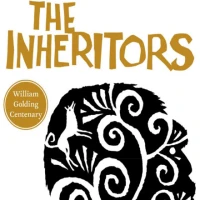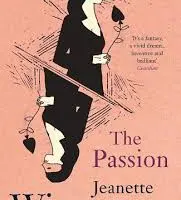Death of a Red Heroine, by Qiu Xiaolong
I love crime fiction, but I despair sometimes of how formulaic a lot of it is.
Sometimes it seems like there’s a checklist to be adhered to. I’ve lost track of how often I’ve encountered literary detectives with most of these traits: drinking problem; workaholic; loner who doesn’t get along with his superiors; marital problems or problems with ex-wife; unorthodox crime-solving technique (possibly based on intuition); prosaic-minded assistant; personal interests ostensibly unusual in a police officer; either highly attractive to women (despite not being classically handsome) or scruffily unattractive; I could go on…
Death of a Red Heroine is the first novel of the Inspector Cao (pronounced Tsao, I’ll come back to that) novels by Qiu Xialong. It’s set in Shanghai in 1990, and it comes with a fair few of the clichés mentioned above. It also though paints a convincing picture of Shanghai and China during the transition from communism to capitalism and while I was initially sceptical of the book I was won over by it. By the time I finished I’d decided at some point to read the next in the series.
Inspector Cao is a Chief Inspector in the Shanghai police force. He’s also a published poet and something of an intellectual (he is prone to quoting TS Elliot), which is unusual for a cop. He has no wife and is considered a workaholic by his peers, but there is the possibility of romance with a beautiful journalist he knows.
Cao heads up a special crimes unit. Crimes are special because they are political, and so when the body of a young woman turns up in a canal he only takes on the case initially for want of anything better to do. As time passes, his superiors wonder why he’s bothering, but he pushes on regardless because his intuition tells him there’s something more to it than the prevailing theory that she was killed by a random taxi driver.
Cao’s intuition is soon proven right. When the woman is identified it turns out that she was a “National Model Worker” and had been held up by the Party as an example of Communist diligence. That makes the case distinctly political, with some of his superiors now concerned that she might have been murdered as part of some kind of attack on the Party. Cao thinks not, but his investigation soon throws up political links all the same and ones that possibly his superiors would prefer left uncovered.
Did that sound original? I suspect not. Death of a Red Heroine is not an original book. Originality though isn’t everything and it shines in other ways.
Qiu Xialong was born and grew up in China, but relocated to the US and wrote the novel in English. Arguably, it’s US rather than Chinese literature. For all that, the depiction of China as it goes through a radical economic transformation is convincing and well communicated.
As the novel opens, Cao has been assigned his own apartment. He’s been jumped up the queue for housing despite having no family of his own. Many of Cao’s colleagues need an apartment much more than he does and have been waiting longer, but Cao has political connections and that’s what counts. Here’s the description of this prize that marks Cao out as a man on the fast track:
It was not luxurious. There was no real kitchen, only a narrow corridor containing a couple of gas burners tucked into the corner, with a small cabinet hanging on the wall above. No real bathroom either: a cubicle large enough for just a toilet seat and a cement square with a stainless-steel shower head. Hot water was out of the question. There was, however, a balcony that might serve as a storeroom for wicker trunks, repairable umbrellas, rusted brass spittoons, or whatever could not be decently squeezed inside the room. But he did not have such things, so he had put only a plastic folding chair and a few bookshelf boards on the balcony.
In this short passage Xialong makes apparent to his most likely readers how different Cao’s ideas of prosperity are to theirs and also of course quite how cramped life in China is. Xialong’s prose isn’t particularly subtle, but he does bring 1990s Shanghai to cramped and sweaty life and it’s extremely easy to visualise the locations and scenes in the novel.
It’s common for crime fiction to not really be about crime at all. Here the murder is primarily a vehicle for exploring a time and place. Under the communist regime the victim was a celebrity, but with capitalism now starting to flourish she’s obsolete. Once she was held up as being what communism was all about, now she’s cast aside on a piece of derelict land. Her life and death are a microcosm of what is happening to the communist system more generally.
As the novel continues some of the more hackneyed elements of Cao’s character are explained, and how they are explained is interesting. By way of example, Cao is a poet-policeman not because he’s an intellectual who went into policework but because in the China he grew up in jobs were assigned by the state, not chosen.
Cao was not sent to the countryside to learn from the peasants during the cultural revolution, and so graduated from university with an education far superior to most of his peers. The skills and grades this gave him led to his being assigned a high-flying position in a prestigious government ministry. Later security checks revealed that he had a relative who had been convicted of crimes against the state, and so he ceased to be eligible for his new post. Accordingly, he was reassigned within the ministry and so found himself with “a job in the Shanghai Police Bureau”.
Xiaolong achieves two things with Cao’s character background. Firstly, he gives a good reason for his detective to be an intellectual as well as a police officer, so meeting crime procedural fans’ genre expectations. Secondly though he says a lot about how the Chinese system worked and about how a man who by all accounts is a gifted poet could end up doing something so utterly disparate.
I’ll soon be blogging a book by a Chinese writer named Ma Jian, which features a great many Chinese artists and intellectuals. Every one of them has a day job, often one quite at odds with their identity as a poet or painter. Xialong has shown the same thing in his crime novel, and in a very digestible way.
Cao’s career path is typical of how the book illustrates life in China in this period. Although there are one or two infodumps, mostly things are explained via the characters’ situations and assumptions. Even the clues they discover say something about their society. When it looks like the dead woman was dumped from a private car, a policeman comments:
“Well, not too many people have their own cars-except high cadres, and they would not have their chauffeurs drive them around on such an errand.”
If she was dumped from a car then either she was killed by a taxi driver or by someone politically connected. There just aren’t enough cars in private hands for other possiblities to be at all likely.
Similarly, many of the characters make frequent use of classical quotations in their everyday speech. That sounds unlikely, but my wife has studied Mandarin and had previously mentioned that it was much more common than one would imagine. It’s another small way of showing how things differ from how one might expect.
Cao comes of course with a sidekick, here an older but low ranked policeman by the name of Yu. Initially Yu is suspicious of his unpolicemanlike boss, but as time goes on they develop a mutual respect. Again, it’s not original, but again it’s reasonably well executed:
That was just like Chief Inspector Chen, rhapsodizing about a Tang dynasty poem in the middle of a murder investigation. Perhaps Chen had had too much beer. A month earlier, Detective Yu would have taken it as an instance of his boss’s romantic eccentricity. But he found it acceptable today.
If Death of a Red Heroine were just a series of disguised essays on Chinese politics and society I wouldn’t have enjoyed it. Fortunately, it also works as a straightforward crime novel. Cao and Yu have no great intuitive leaps (Cao’s intuition tells him to pursue the case, but doesn’t help him solve it). They get few lucky breaks. Mostly here the policework is a matter of questioning witnesses, searching locations, comparing statements with each other and with the available physical facts and going over it all again whenever discrepancies arise. It’s solid, methodical policework that solves the case here, and I was pleased that Xialong at least avoided the genius cop cliché.
Cao makes for an enjoyable protagonist. He’s patriotic and dedicated, and he believes in the system even though he knows perfectly well that it’s ridden with corruption. He’s an honest man who does his best to help realise a vision of a society that by and large he believes in, and while I first noticed his obstructive superiors over time I noticed too that he wasn’t alone in being essentially honest. The book is full with people who are blinkered, prejudiced or corrupt but that’s not the whole story.
In a way that’s another comment on the society. It’s not just hard working communists working for a better tomorrow, but nor is it entirely venal party officials and grasping functionaries. It’s all those things and just as there are the crooked and the power-hungry so too there are people who are trying in small ways to look out for each other and do what’s right. It’s a subtler portrait than it could easily have been, and improves the book.
Death of a Red Heroine is not a literary novel. It is though good genre fiction. Xialong has a prose style which is clean and fast reading and I read the nearly 500 pages of this book without finding it overlong. I don’t as a rule read police procedurals, but I wasn’t sorry to make an exception here and given I read it between novels written by authors who were Chinese nationals and whilst travelling in China I can say it’s much more authentic than one might imagine.
On a final note, the common method of transliterating Chinese characters into English today is called Pinyin. It’s incredibly unintuitive. Cao as noted above is actually pronounced Tsao. That’s typical. There’s almost no relationship between how a word is spelled and how it’s pronounced.
The pronunciation rules for Pinyin are consistent, so once you know them you can read Pinyin and pronounce the word in a way someone Chinese might understand. If you read a Pinyin word as written without knowing the rules though nobody Chinese would have the faintest idea what you were saying.
Death of a Red Heroine comes without a guide to pronunciation, leading to the slight oddity that unless you do your own research you’ll be mentally mispronouncing every name in the book. It’s a small point, but it did rather irritate me. Having now read several Chinese books though I can honestly say that Pinyin generally rather irritates me.
I’ll close with one last quote, which I can’t resist as I think it sums up the point of the book rather well:
“Historically, a transitional period is short,” she said, in her turn surprised, but animated for the first time in the course of their conversation, “but existentially, not so short for the individual.”















I found Qiu Xiaolong’s name while researching Chinese authors writing in French for you.
It caught my attention –I like to read crime fiction in other countries or other times– and apparently it is interesting, even if it’s not a breakthrough in literature. The setting is exotic enough.
I know what you mean about pinyin : my copy of Pa Kin has a a glossary to help with the pronunciation of Pinyin transcription of names. Not intuitive at all.
PS : I’m glad you’re reading Proust’s second volume of In Search of Lost Time. I’m still in it. It’s so French. If you don’t mind, I’ll have a few questions for you, I’m curious to know how some things have been translated.
Pingback: Qiu Xiaolong: Death of a Red Heroine - World Literature Forum
These reviews of Chinese work are very interesting Max, not stuff I’d be aware of at all otherwise. Thanks.
Red Dust is next I think, blogwise, though work may mean it has to wait a few days. That’s an interesting one.
I’ve got a couple of Chinese classics I’m slowly working through too. That said, I’m barely scraping the surface. I need to follow up on some of bookaround’s suggestions.
Look forward to it. And yes, thanks to bookaround for the list of suggestions…
Book, slow progress on Proust so far, work suddenly picked up. That said, once I’m further in I’ll be delighted to have a go at any questions you may have.
Slow progress on Proust on my side too, too tired by business trips.
I found a translation online, I should find some answers there and limit the number of questions.
i read the novel a couple of years ago and loved it. i didn’t like the rest of the series though. it’s suffice to say that the later works has become formulaic/repetitive.
Thanks for the warning Karlo. I can easily see how that could happen. That’s the trouble with series, the genre elements can end up dominating the original stuff, but it’s the original stuff that makes the genre bits interesting.
That was clearer in my head than it looks in print. Oh well.